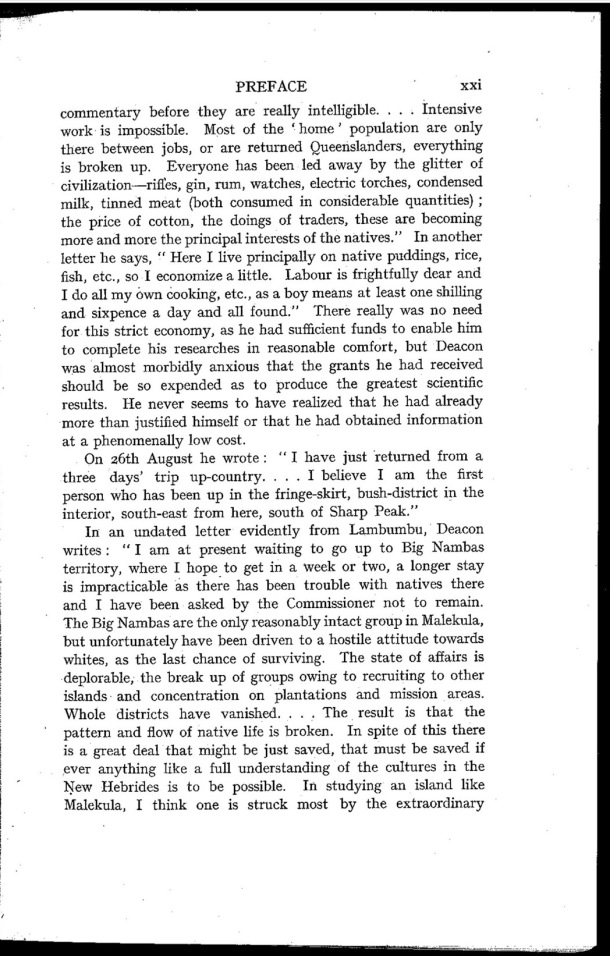|
|  [Note: this transcription was produced by an automatic OCR engine]
s
1
PREFACE xxi
commentary before they are really intelligible. . . . Intensive
work is impossible. Most of the ‘home ’ population are only
there between jobs, or are returned Queenslanders, everything
is broken up. Everyone has been led away by the glitter of
civilizati0n—rifl'es, gin, rurn, watches, electric torches, condensed
milk, tinned meat (both consumed in considerable quantities) ;
the price of cotton, the doings of traders, these are becoming
more and more the principal interests of the natives." In another
letter he says, “ Here I live principally on native puddings, rice,
ï¬Åsh, etc., so I economize a little. Labour is (rightfully dear and
I do all my own cooking, etc., as a boy means at least one shilling
and sixpence a day and all found." There really was no need
for this strict economy, as he had suï¬Åicient funds to enable him
to complete his researches in reasonable comfort, but Deacon
was almost morbidly anxious that the grants he had received
should be so expended as to produce the greatest scientiï¬Åc
results. He never seems to have realized that he had already
more than justified himself or that he had obtained information
at a phenomenally low cost.
On 26th August he wrote: “I have just returned from a
three days’ trip upcountry. . . . I believe I am the ï¬Årst
person who has been up in the fringe-skirt, bush-district in the
interior, south-east from here, south of Sharp Peak.â€ù
In an undated letter evidently from Lambumbu, Deacon
writes: "I am at present waiting to go up to Big Nambas
territory, where I hope_to get in a week or two, a longer stay
is iITlpI‘aCtiC3.lJ1€ as there has been trouble with natives there
and I have been asked by the Commissioner not to remain.
The Big Nambas are the only reasonably intact group in Malekula,
but unfortunately have been driven to a hostile attitude towards
whites, as the last chance oi surviving. The state of affairs is
deplorable, the break up of groups owing to recruiting to other
islands and concentration on plantations and mission areas.
Whole districts have vanished. . . .The result is that the
pattern and flow of native life is broken. In spite of this there
is a great deal that might be just saved, that must be saved if
ever anything like a full understanding of the cultures in the
New Hebrides is to be possible. In studying an island like
Malekula, I think one is struck most by the extraordinary
|